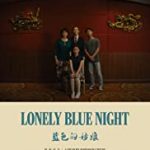So what’s this thing called marketability and do I need to worry about it as I write?
As a script consultant this is a question I’ve been asked by writers many times and it’s a good one. The answer is yes, and um, well, no. How’s that for confusing? I’ll try to clarify…
Marketability (or commerciality) is a term used to describe a project’s viability in the marketplace. Key here is how likely it is to draw an audience. Anyone reading your script (from agents to production or distribution companies) will be taking a look at the piece with an eye to its marketability. If they determine that the project is unlikely to find an audience they probably won’t want to move forward with it.
There’s a pretty straightforward bottom line at work here: if no one comes to see the movie then there’s no way to make money on it or recoup the investment in it. Makes sense right? It’s the same thing you’d ask yourself if you were an agent considering investing many hours of valuable time to sell the script or wondering if you should put up millions of dollars to make the movie.
So if your project is going to gain momentum in the marketplace there needs to be some element of commercial viability. Now you’re probably wondering how this is assessed. Well there are many, many factors that come into play here. Budget, cast, director, genre, and hook are just a few.
BUDGET. Is the piece low, medium or high budget? Determining this is key because it dictates what other elements will be needed to ensure the piece finds an audience. For example a low budget indie made for a million dollars doesn’t need the cast required by a big budget studio piece.
CAST. Will the script attract cast that are meaningful enough (ie: recognizable) to draw an audience? Grown Ups is a good example of this. While the script is pretty thin on story it’s done over 142 million at the box office and continues to draw an audience primarily because of the cast. Anyone reading the project in it’s initial stages would have seen the castability immediately.
DIRECTOR. Is the script strong enough to interest a director who will elevate the piece and increase the likelihood of it attracting an audience? The Hangover is an example of a script finding the perfect director (Todd Phillips) for the piece. In a different director’s hands it could have easily been an edgy art house film with a niche audience. Director appeal would have been apparent from the first read.
GENRE. In very general terms genre pieces, such as thrillers and action films, will attract a wide audience while dramas are traditionally more challenging because they often lack a clear, easy to market premise. If the script is a drama then the other elements (cast, director, budget, hook) become a bigger piece of the puzzle.
HOOK. This is an assessment of the script’s overall uniqueness and is the most important question to ask when thinking about marketability. Without a clear, original premise that can be used to market the piece you will likely face an uphill battle when trying to find representation, financing or distribution. Hurt Locker, The Hangover, and Up, all have highly original ideas which can be easily conveyed. Just take a look at their trailers or posters – the hook is easy to see.
These are just a handful of the questions agents, development executives and production companies ask themselves when evaluating a script’s marketability.
So should you be thinking about any of this while you write?
This is where the no part comes in. I’ve found that scripts written solely with the marketplace in mind rarely work well. Good writing comes from your unique ideas and the way you see the world. It’s far more important to tell a story you want to tell with your original voice than it is to think about the marketplace.
Yet, that said, once you’ve written your piece it’s important to be able to stand back and honestly assess it’s marketability. This will help you to be realistic in your expectations. If you write a script about a young woman’s search for her AWOL father in the bitterly cold Ozark Mountain’s (Winter’s Bone – a very good low budget film that’s done 4 million at the box office) know that it will probably find a smaller audience than Inception (soon to reach 200 million). And will therefore face some limitations when seeking a foothold in the marketplace.
So first and foremost write the story you want to tell. Write it really, really well. Then take an honest look at it’s market potential and proceed with realistic expectations around how your piece will be received in the marketplace.


